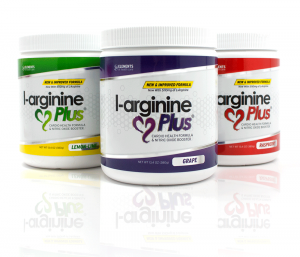Some heart health “rules” are either misconceptions or outdated. Keep reading to find out what heart health recommendations you shouldn’t follow.
Taking care of your heart health is essential, but unfortunately, there are many misconceptions out there about how to do it effectively. “It can be tricky to know what to do when it comes to improving your heart health because, like all science and medicine, it’s an ever-evolving field of study,” says Brittany Owen, a cardiologist at UT Physicians and Memorial Hermann in Houston, Texas. “There’s a lot of misinformation on the internet too – like with most topics – so it can be hard to find the truth.”
Not only that, but everyone has different needs, which means treatments are not necessarily one-size-fits-all. “For that reason, heart-healthy guidelines should be modified and patient-centered,” says Lisa Moskovitz, a New York-based registered dietitian and author of The Core 3 Healthy Eating Plan. To help you sift through some of the outdated and wrong information out there, here are a few common heart health recommendations that you shouldn’t follow – at least, not without talking to your doctor first.
1. Taking Aspirin Daily
 While it’s true that taking daily aspirin may help prevent heart attacks and strokes for some, they also come with serious side effects risks. For this reason, the U.S. Preventative Services Task Force determined that taking daily aspirin is no longer a general recommendation.
While it’s true that taking daily aspirin may help prevent heart attacks and strokes for some, they also come with serious side effects risks. For this reason, the U.S. Preventative Services Task Force determined that taking daily aspirin is no longer a general recommendation.
According to Michael Weinrauch, a New Jersey-based cardiologist and the chair of cardiology at Overlook Medical Center, taking daily aspirin can be either beneficial or extremely risky. “In most cases, it’s completely unnecessary,” says Weinrauch.
2. Vaping Over Smoking
Some people believe that vaping is better for you than smoking, but that’s not the case. “Inhalation of hot air, whether from a cigarette, vape pen, or burning building is never good for the lungs, no matter how you slice it,” says Owen. “With vaping comes toxic chemicals and oils that scar the lungs.”
3. 10K Steps Is All You Need
“While it’s important to your overall health to avoid being sedentary, it’s not enough to walk 10,000 steps a day to prevent cardiovascular disease,” says Owen. Experts recommend that you get at least 150 minutes of moderate-intensity aerobic exercise per week. Moderate-intensity refers to exercise that increases your heart rate and causes you to break into a slight sweat. “If you aren’t able to do that at your current fitness level, aim to slowly increase your activity level each week until you reach this goal,” recommends Owen.
Improving Your Heart Health
 If you want to maintain a healthy heart, it’s always a good idea to check with your doctor before following any “rules” you find on the internet or hear from friends. Even if you encounter a credible piece of information, it might not be beneficial for your specific circumstances.
If you want to maintain a healthy heart, it’s always a good idea to check with your doctor before following any “rules” you find on the internet or hear from friends. Even if you encounter a credible piece of information, it might not be beneficial for your specific circumstances.
However, some general recommendations that can typically boost anyone’s heart health include exercising regularly, eating healthily, and taking supplements like L-arginine Plus. Its ingredients promote circulation, blood pressure, cholesterol, and more. Talk to your doctor to see if L-arginine Plus can help support your heart health right now.

